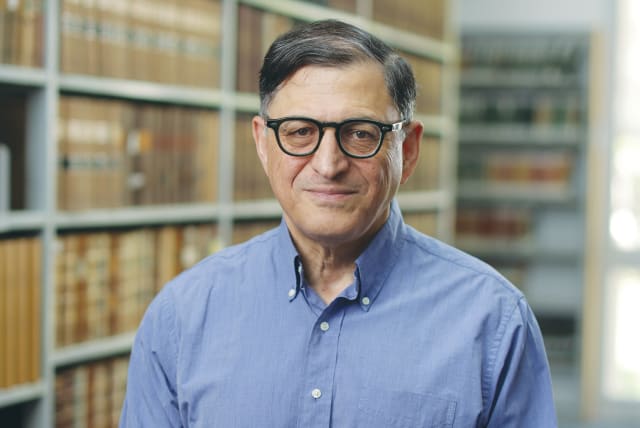Putting democracy under the microscope

The Center for Applied Research on Risks to Democracy opens its doors at Tel Aviv University.
“We need to dig deeper to understand the underlying problems of democracy and how to try to begin to resolve them,” says Prof. Eyal Benvenisti, head of Tel Aviv University’s Center for Applied Research on Risks to Democracy, which will open this June. “We are not aiming to answer theoretical questions about why to choose democracy, or how to preserve free speech, but to identify challenges and risks and seek solutions.”
Benvenisti, who most recently served as the Whewell Professor of International Law and director of the Lauterpacht Centre for International Law at the University of Cambridge, UK, recently returned to Israel to lead the center. It will identify the major problems facing contemporary democratic societies, pursue applied research to address them and disseminate knowledge both in Israel and worldwide.
The center will foster and promote innovative, applied, and multidisciplinary research that approaches democracy from diverse perspectives. At the same time, it will seek to cultivate a new cadre of leaders, teachers, and innovators equipped with a “democracy toolkit” for the study and teaching of the concept, as well as advance civic education and public engagement.
“Democracy is susceptible to all sorts of manipulations,” Benvenisti explains, “and like the economic market, the political market must also be regulated so there is no abuse of power. The idea is to understand that democracy is under constant risk and to reflect on the reasons for the risks and how to prevent or mitigate them.”
Israel today suffers from a lack of trust among communities and in leadership, he says. As a result, politics has become more polarized. “The thinking is how to preserve a sense of trust, reclaim a sense of community, and create a sense of common purpose,” notes Benvenisti. Israeli society must develop tools that promote the interests of the entire society rather than serve particular sectors, he believes.
One of the most important activities of the Center for Applied Research on Risks to Democracy will be educating children about the value of democracy, the significance of rights and tolerance, and why checks and balances are needed.
These issues were the subject of much stormy debate during the struggle over Israel’s judicial reform. “People want to know the issues at hand,” the professor says, “and I think it’s something that is a service that we need to provide as a way to engage our different communities in a discussion about how to run our lives. We are here together, and we want everyone’s interests to be reflected and [their] rights respected.”
While the work of the center will concentrate on Israeli democracy, Benvenisti says that its findings will be applicable to other countries around the world. “We believe that there are many things that are common to Israel and other countries, like the influence of social media, and that our expertise will be important for other communities.”
The first formal gathering of the center will be held on June 16, and Benvenisti hopes to team up with other centers of democracy located in Israel to share findings, recommendations, policy papers, and publications.
The Center for the Applied Study of Risks to Democracy will be an independent unit within Tel Aviv University, with associated faculty from various disciplines. It will be the first academic center of its kind to serve as a global hub for identifying challenges to democracy around the world – and seeking out responses to counteract them.
Jerusalem Post Store
`; document.getElementById("linkPremium").innerHTML = cont; var divWithLink = document.getElementById("premium-link"); if (divWithLink !== null && divWithLink !== 'undefined') { divWithLink.style.border = "solid 1px #cb0f3e"; divWithLink.style.textAlign = "center"; divWithLink.style.marginBottom = "15px"; divWithLink.style.marginTop = "15px"; divWithLink.style.width = "100%"; divWithLink.style.backgroundColor = "#122952"; divWithLink.style.color = "#ffffff"; divWithLink.style.lineHeight = "1.5"; } } (function (v, i) { });

